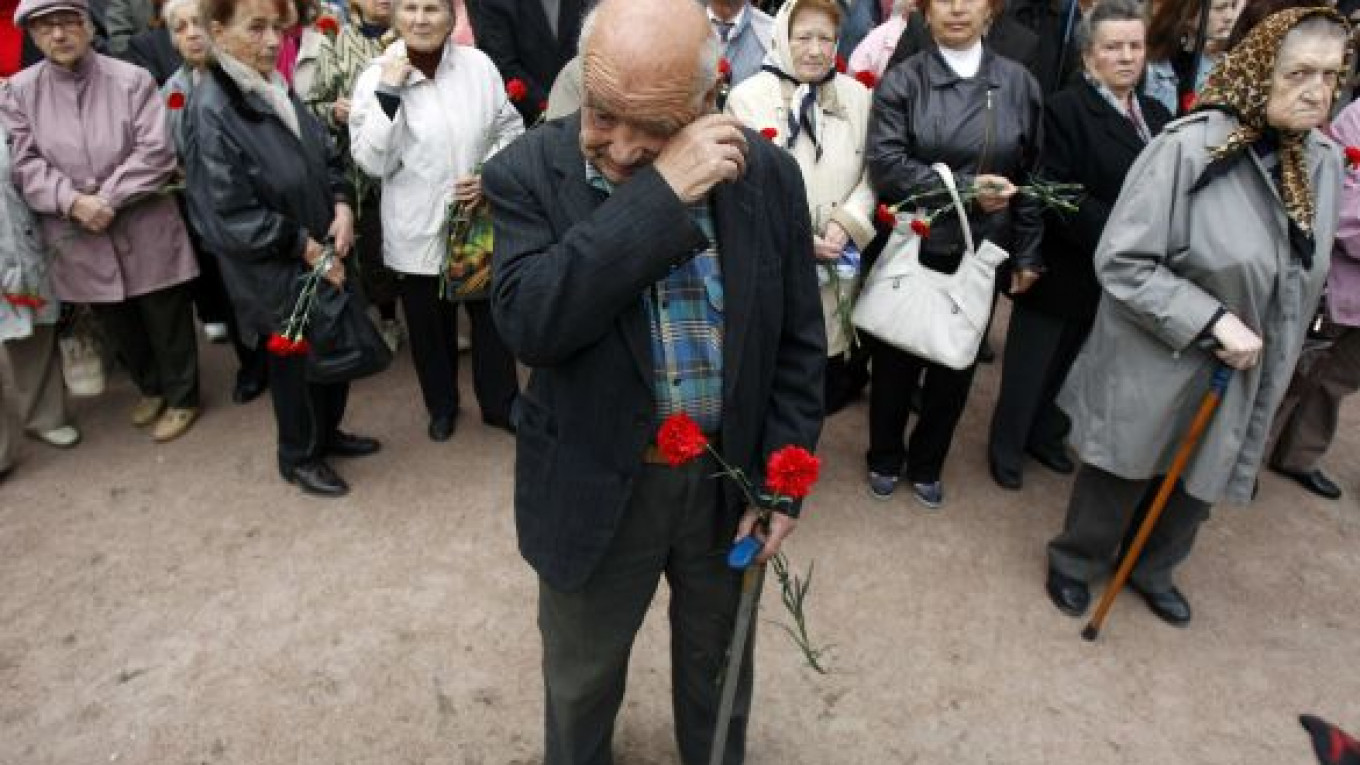KIEV — Hundreds of people gathered in Kiev to commemorate the 69th anniversary of the Nazi massacre of tens of thousands of Jews.
President Viktor Yanukovych, government officials and relatives of the victims laid flowers at the monument to those killed by the Nazis in the Babi Yar ravine.
More than 33,700 Jews were shot in Babi Yar over the course of two days, beginning Sept. 29, 1941, one of the most horrific killings of the Holocaust.
In the ensuing months, the ravine was filled with some 100,000 bodies, including those of non-Jewish Kiev residents and Red Army prisoners of the Nazis.
Mourning events also were being held nationwide.
One survivor of the massacre, Viktor Stadnik, said Wednesday that his mother thought that they might be sent to Palestine as the Nazis rounded them up. "It would be great if we were taken to Palestine — it's warm there," he recalled his mother as saying as the Nazis were leading them to Babi Yar. Stadnik, who was 7 at the time, managed to escape, thanks to his Ukrainian neighbors.
"I cannot think about those days without tears. This crime against innocent people should never be forgiven," said Tamara Kovalenko, a 73-year-old Ukrainian whose aunt was killed together with her Jewish husband. Kovalenko said that her mother had been hiding a Jewish girl during the Nazi occupation.
The exact death toll at Babi Yar remains unknown. In 1943, as the Red Army approached to free Ukraine, the Nazis ordered Jewish prisoners to dig up the corpses and burn them.
For decades, the Soviets maintained silence about what happened in Babi Yar. Only after Russian poet Yevgeny Yevtushenko drew international attention to the massacre with his 1961 poem "Babi Yar" did the Soviets put up a monument.
A Message from The Moscow Times:
Dear readers,
We are facing unprecedented challenges. Russia's Prosecutor General's Office has designated The Moscow Times as an "undesirable" organization, criminalizing our work and putting our staff at risk of prosecution. This follows our earlier unjust labeling as a "foreign agent."
These actions are direct attempts to silence independent journalism in Russia. The authorities claim our work "discredits the decisions of the Russian leadership." We see things differently: we strive to provide accurate, unbiased reporting on Russia.
We, the journalists of The Moscow Times, refuse to be silenced. But to continue our work, we need your help.
Your support, no matter how small, makes a world of difference. If you can, please support us monthly starting from just $2. It's quick to set up, and every contribution makes a significant impact.
By supporting The Moscow Times, you're defending open, independent journalism in the face of repression. Thank you for standing with us.
Remind me later.






